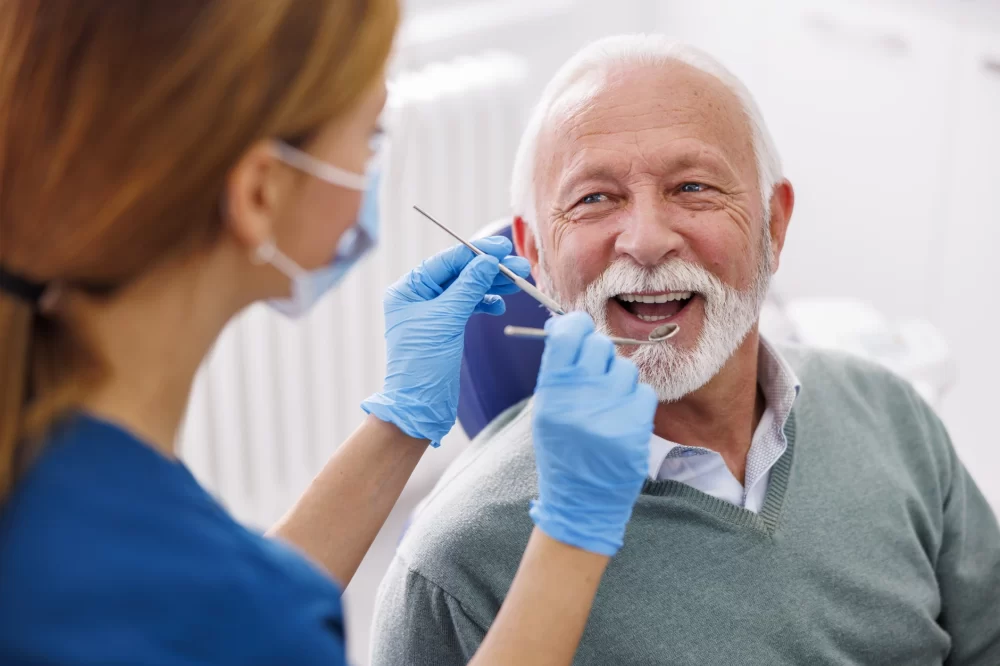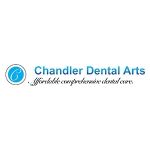
Common Dental Problems in Older Adults and How to Treat Them
As we age, our bodies change in many ways, and our oral health is no exception. Over the years, I’ve witnessed firsthand the various dental issues that older adults face. Having a strong foundation of dental care is essential for maintaining a healthy mouth, but common dental problems in older adults can often go unnoticed until they become severe. In this article, I'll share with you some of the most common dental problems that seniors encounter and offer practical advice on how to treat and prevent them.
1. Gum Disease: A Silent Threat
One of the most prevalent dental problems in older adults is gum disease, also known as periodontal disease. It typically starts with gingivitis, an inflammation of the gums, and, if left untreated, it can progress to more severe forms of gum disease, including periodontitis. This condition can result in tooth loss and is often the result of poor oral hygiene practices over time. Sadly, many older adults are unaware they have gum disease because the symptoms may not be noticeable at first.
As someone who's seen many patients struggle with gum disease, I can say that the best treatment for gum disease is prevention. Regular brushing with fluoride toothpaste and flossing are key in preventing the buildup of plaque and tartar that lead to gum disease. Additionally, seeing a dentist regularly for professional cleanings is crucial, as these can remove the hardened plaque that regular brushing can’t.
2. Dry Mouth: A Common, but Overlooked Condition
Another issue that many older adults face is dry mouth, or xerostomia. Dry mouth occurs when the salivary glands don’t produce enough saliva. This condition can make it difficult to speak, swallow, and even taste food, but it also leads to other complications such as tooth decay and gum disease. For many seniors, dry mouth is a side effect of medications they may be taking for various health conditions, including high blood pressure, depression, and diabetes.
If you or a loved one is dealing with dry mouth, there are a few ways to alleviate the symptoms. Drinking plenty of water throughout the day is essential. Additionally, using sugar-free gum or lozenges can stimulate saliva production. There are also over-the-counter saliva substitutes and mouth rinses that can provide temporary relief. If the problem persists, it’s important to consult with a dentist, who can suggest additional treatments or alternatives that can help restore moisture to the mouth.
3. Tooth Sensitivity: A Common Complaint
Tooth sensitivity is a condition that many older adults experience, especially as their teeth begin to wear down with age. Sensitivity can be triggered by hot, cold, or sweet foods and drinks, and it can cause sharp, sudden pain. For many, this condition can become more frequent as the enamel on their teeth thins, exposing the sensitive dentin beneath. Tooth sensitivity is especially common in older adults who have receding gums, a condition where the gums pull back, exposing the root surfaces of the teeth.
Luckily, tooth sensitivity can be treated. Using toothpaste designed for sensitive teeth can help block the pain. For more severe cases, a dentist may recommend treatments like fluoride varnishes or desensitizing agents that can help strengthen the enamel and reduce sensitivity. In cases of gum recession, a dentist may also suggest gum grafts to cover the exposed tooth roots and reduce sensitivity.
4. Tooth Loss: More Than Just an Aesthetic Issue
Tooth loss is one of the most concerning dental issues for older adults. The loss of teeth can significantly affect one's ability to chew, speak, and smile confidently. While tooth loss can be a natural part of aging, it’s often the result of untreated dental problems such as cavities, gum disease, or tooth decay. Losing teeth not only affects one’s self-esteem but can also impact overall health, as it can limit dietary options and make it more difficult to eat healthy foods.
There are a variety of treatments for tooth loss, depending on the severity and location of the missing teeth. Dentures are one of the most common solutions, but for those who want a more permanent option, dental implants may be a better choice. Implants are titanium posts that are placed into the jawbone and act as a foundation for replacement teeth. They offer a more natural look and feel than dentures and can help maintain jawbone health.
5. Oral Cancer: The Importance of Regular Screenings
Oral cancer is another serious dental issue that can affect older adults. It often starts as a small, unnoticed lesion in the mouth, and if not detected early, it can spread and become life-threatening. Smoking and excessive alcohol consumption are major risk factors for oral cancer, but even those who don’t smoke or drink heavily can still develop the disease.
Regular dental checkups are essential for detecting oral cancer early. During routine exams, a dentist will check for any unusual sores, lumps, or lesions in the mouth. If caught early, oral cancer is more treatable, which is why regular screenings are so important. If you’re concerned about oral cancer, it’s important to bring it up with your dentist, who can help guide you through any necessary tests or screenings.
6. Preventing Dental Problems in Older Adults
While many dental issues are common among older adults, they can often be prevented with the right care. Here are a few tips to help you or your loved ones maintain optimal oral health:
- Brush and floss daily: Brushing twice a day with fluoride toothpaste and flossing once a day are the most important things you can do to keep your teeth and gums healthy.
- Visit the dentist regularly: Even if you don’t have any dental pain, regular dental visits are crucial for preventing and catching problems early. Your dentist can help keep your teeth and gums in good shape.
- Maintain a healthy diet: Eating a balanced diet with plenty of fruits and vegetables helps keep your teeth strong. Avoid sugary snacks and drinks, which can contribute to cavities and gum disease.
- Stay hydrated: Drink plenty of water throughout the day to help prevent dry mouth and keep your mouth moist.
- Don’t smoke or drink excessively: Smoking and excessive drinking can contribute to gum disease and oral cancer. If you haven’t already, quitting can greatly improve your oral health.
By following these simple steps, you can significantly reduce the risk of common dental problems in older adults and enjoy a healthier smile for years to come. Dental health is just as important as overall health, and with the right care, we can continue to keep our teeth and gums in good condition no matter our age. Remember, regular dental visits and early intervention are key to maintaining excellent oral health!







 Cain Orthodontics, PC4.0 (95 review)
Cain Orthodontics, PC4.0 (95 review) Vaughn Family Dental- Jessica Vaughn, DDS4.0 (125 review)
Vaughn Family Dental- Jessica Vaughn, DDS4.0 (125 review) Chandler Dental Arts4.0 (715 review)
Chandler Dental Arts4.0 (715 review) Eric B Chandler Health Center: Moore Kirk W DDS3.0 (6 review)
Eric B Chandler Health Center: Moore Kirk W DDS3.0 (6 review) New Horizons Family Dental4.0 (114 review)
New Horizons Family Dental4.0 (114 review) Advanced Dentistry of Phoenixville4.0 (543 review)
Advanced Dentistry of Phoenixville4.0 (543 review) The Importance of Oral Health Education During Pregnancy for a Healthy Pregnancy
The Importance of Oral Health Education During Pregnancy for a Healthy Pregnancy Best Tips for Brushing Your Teeth Properly for Healthy Gums: Essential Techniques for Oral Health
Best Tips for Brushing Your Teeth Properly for Healthy Gums: Essential Techniques for Oral Health Why Skipping Dental Checkups Can Lead to Bigger Oral Health Problems
Why Skipping Dental Checkups Can Lead to Bigger Oral Health Problems Advantages of Porcelain Dental Restorations
Advantages of Porcelain Dental Restorations How Can Diabetes Cause Tooth and Gum Problems? Preventing and Managing Oral Health Issues
How Can Diabetes Cause Tooth and Gum Problems? Preventing and Managing Oral Health Issues Healthy Habits for Promoting Good Oral Health and Hygiene: Tips for a Healthy Smile
Healthy Habits for Promoting Good Oral Health and Hygiene: Tips for a Healthy Smile